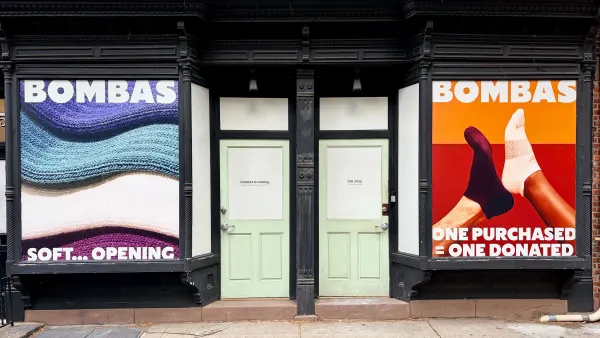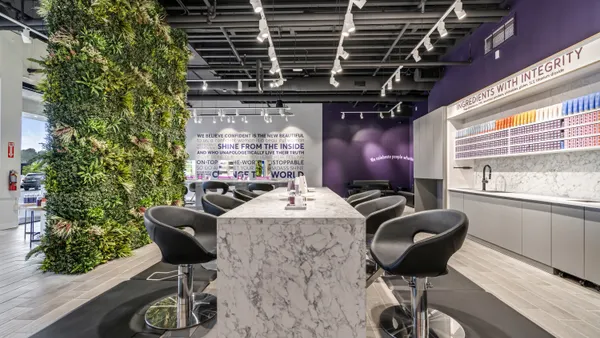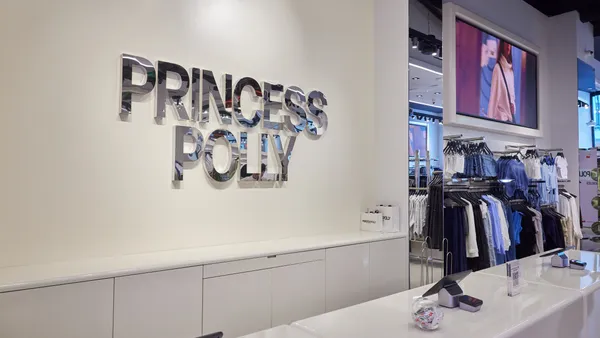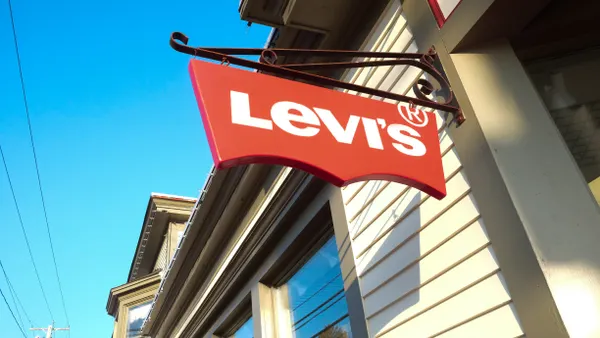Dive Brief:
-
E-commerce apparel retailer Everlane is contemplating a move into brick and mortar retail, CEO Michael Preysman and designer Rebekka Bay told attendees at last week's Fashion Tech Forum in Brooklyn, Fashionista reports.
-
Preysman — who in 2012 told the New York Times T fashion magazine that Everlane would never open a brick-and-mortar store, even as it was opening pop-ups in New York, San Francisco and Los Angeles — said Thursday "There is a set of customers that wants to touch product before they buy it, and that's not something that we can change, no matter how much social media we do. So we are thinking about [physical retail]. We’re looking at it, and that’s all we can say at the moment."
-
Such a move would follow similar pivots by pure-play darlings Warby Parker, Bonobos, Casper and Birchbox (as well as e-commerce stalwart Amazon) to boost sales and brand recognition through physical stores.
Dive Insight:
As e-commerce took retail by storm over the last two decades, many observers declared the end of brick and mortar, but pure-play retailers are discovering that physical stores offer their customers a highly effective way to connect with their brands and their merchandise. Now Everlane, which has credited selling (almost) exclusively online for its lower prices and better-quality merchandise, could be joining the list of pure-play efforts that once underestimated the power of a physical store.
Though it doesn’t have a flagship physical retail store yet, Everlane last week launched a partnership with boutique retailer Opening Ceremony: Everlane's core cashmere collection, two limited-edition sweaters and an upcoming holiday capsule collection will be sold through Opening Ceremony's New York City and London locations. Everlane also already has a "Shoe Park" pop-up in New York’s Soho neighborhood open through Oct. 23, one of several short-term pop-up shops and fit studios Everlane has opened over the past three years.
In a report earlier this year, business intelligence firm L2 argued that there is ultimately no such thing as “pure play e-commerce” because e-retailers sooner or later open physical stores. The L2 report, which includes research conducted with Simon Property Group, notes that online sales simply can't match the potential of walk-in traffic that helps boost physical store sales.
“Notably, excluding Amazon, pure-play e-commerce retail and software companies made up just a fraction of sales, with the lion’s share captured by omnichannel retailers,” according to the report. Amazon itself continues to struggle with profitability, for that matter, and depends on its cloud services to back up its e-commerce performance.
Scale is another challenge for e-commerce retailers, which have to spend a lot of money acquiring and keeping customers via online efforts, according to L2. “The vast amount of capital required to scale a customer base in the commoditized e-tailing landscape has proven to be unsustainable for even the most well-funded players.”












